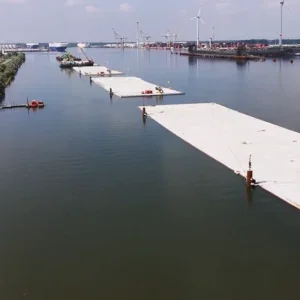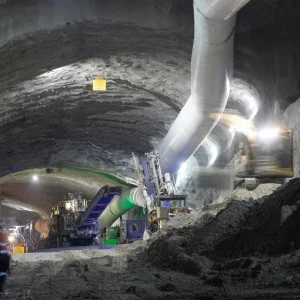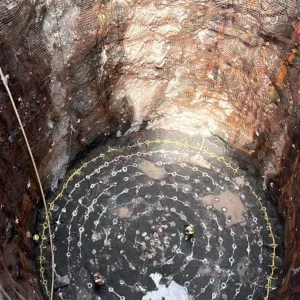The C$4.15bn eight-lane immersed tunnel across British Columbia’s Fraser River river crossing will have three general purpose traffic lanes and one dedicated bus lane in each direction, as well as a bi-directional multi-use cycle path/pedestrian walkway to improve travel across the river without restricting navigable space for marine traffic. Completion is scheduled for 2030.
International engineering consulting group COWI has been awarded the C$15m contract as the owner’s engineer for the tunnel. COWI will conceptualise and oversee removal of the original four-lane George Massey Tunnel, which the company designed in 1959, and construction of its eight-lane replacement. The new tunnel will include flood control systems, ensuring it can remain operational during extreme river flows and in the face of rising sea levels.
COWI has a track record of designing immersed tunnels, including the world’s longest immersed tunnel for road traffic, across the Pearl River Delta in China, and the first immersed tunnel designed against typhoon waves in South Korea. COWI has also helped create pioneering tunnel concepts for an immersed tunnel in the centre of Stockholm where the water depth to an existing utility pipe near the tunnel alignment required casting of the tunnel elements on site under floating conditions.

Canadian engineering company RF Binnie and Associates has won the contact for highway and civil works for the Highway 99 project, also worth C$15m.
Golder Associates, part of WSP, will be responsible for environmental services (C$14.77m) and archaeological services (C$2.1m). Northwest Hydraulic Consultants has been awarded the C$4.4m contract for hydrotechnical and river hydraulics services; Sartori Environmental Inc will be responsible for independent environmental monitoring for the corridor improvement projects; the marine navigation adviser is TyPlan Consulting; the marine construction adviser is RAM Engineering Ltd; and the C$4.188m contract for communication and engagement services was won by Lucent Quay Consulting.
Darryl Matson, senior project director for the project at COWI in North Vancouver, said the company was passionate about the project as the local team used the current crossing frequently.
“We know what a difference we can make to the community. It’s a key transportation link with engineering challenges such as minimising disruption to local ecosystems during construction and ensuring the final tunnel will stand up to natural disasters. It will both test and showcase our talented engineers. The tunnel will break new ground with a dedicated pathway for cyclists and pedestrians and a dedicated bus lane alongside road traffic, helping create cleaner transport and bringing huge trade and travel benefits to the local communities,” said Matson.







